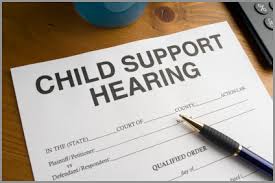If Your Spouse Refuses To Pay Child Support or Maintenance You can bring a proceeding is the Supreme Court or Family Court for a support order if you do not have one. If your separation/settlement agreement or divorce judgment contains a direction to your spouse to pay maintenance or child support you can bring an enforcement proceeding in the Supreme Court or Family Court to enforce your divorce judgment. The Supreme or Family Court can grant you a money judgment against your spouse, direct him/her to put up security for future payments, appoint a receiver of his/her property or hold him/her in contempt of court.
You can also sue your spouse for breach of your separation/settlement contract. If the amount involved is less than $3,000 you can sue for breach of contract in Small Claims Court. You may also obtain an income execution for support enforcement from your attorney, the clerk of the family court or the support collection unit. You may obtain an income deduction order from the court. The Social Services Law states that these services be made available, upon application, to persons not receiving aid to dependent children. Application is made by (i) completing and signing a form prescribed by the Department of Social Services, or (ii) filing a petition with the court or applying to the court in a proceeding for the establishment of paternity and/or establishment and/or enforcement of a support obligation, which includes a signed statement applying for child support services.
The Domestic Relations Law requires a party to “opt-out” of child support enforcement services in writing. Otherwise, in theory although not in practice, they will be imposed. Any written application or motion to the court to establish, modify or enforce a child support obligation, for persons not in receipt of aid to dependent children, must contain either a request for child support enforcement services, which would authorize the collection of the support obligation by the immediate issuance of an income execution for support enforcement; or a statement that the applicant has applied for or is in receipt of child support enforcement services; or a statement that the applicant knows of the availability of child support enforcement services and has declined them.
Where child support enforcement services have been declined, the application or motion must contain a statement that the applicant understands that an income deduction order may be issued without other child support enforcement services and that payment of an administrative fee may be required. Once you invoke the court’s jurisdiction, you’re in it for the long haul.
When an order of support is being or is to be enforced by child support enforcement services, the court must direct that the child support payments be made to the Child Support Enforcement Unit, which must immediately issue an income execution for child support or combined maintenance and child support, and may issue an execution for medical support enforcement in accordance with the provisions of the support order. An exception for a child who is not in receipt of public assistance if a written agreement providing for an alternative arrangement has been reached between the parties.
The written agreement may include an oral stipulation made on the record which results in a written order. If the court issues an order of child support or combined child and spousal support on behalf of persons other than those in receipt of public assistance or in receipt of child support services, it must issue an income deduction order at the same time it issues the support order unless the court finds and sets forth in writing, that an agreement providing for an alternative arrangement has been reached between the parties. The agreement may include a written agreement or an oral stipulation, made on the record which results in a written order.

